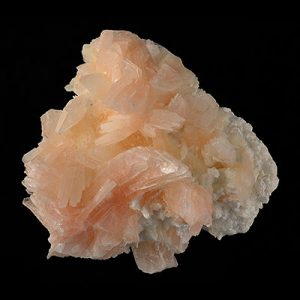Heulandite
Heulandite is one of the members of the Zeolite Group of minerals that includes minerals that are many these gem-type minerals: Analcime, Chabazite, Heulandite, Mordenite, Natrolite, Pollucite, Scolecite, Stilbite, Thomsonite and Yugawaralite. Heulandite is amongst the most frequent and probably one of the most well-understood members of the Zeolite Group. It forms complex and unique crystals with a great luster that is pearly beautiful shades of pinks, greens, and yellows. Crystals are rarely transparent but do have a translucency that is nice them.
There are many locations for Heulandite but some of the finest specimens result from Linópolis, Divino das Laranjeiras, Doce valley, Minas Gerais, Southeast Region, Brazil; Nasik and Pune (Poonah) Districts, Maharashtra, Asia; Drio le Pale, Buffaure Group, Fassa Valley, Trento Province, Trentino-Alto Adige, Italy; Rats Nest Claim, Challis, Custer County, Idaho, United States Of America.
| Category: | Zeolites (tectosilicates) |
| Formula: | (Ca,Na)2-3Al3(Al,Si)2Si13O36·12H2O |
| Crystallography: | Monoclinic – Prismatic |
| Crystal Habit: | Crystals commonly tabular and elongated, widest at the center, hence called “coffin-shaped,” to 12 cm; also granular to massive. |
| Twinning: | With [100] as twin and contact plane. |
| Cleavage: | [010] Perfect |
| Fracture: | Sub-Conchoidal to Irregular/Uneven |
| Tenacity: | Brittle |
| Hardness (Mohs): | 3.5 – 4.0 |
| Density: | 2.10 – 2.20 (g/cm3) |
| Luminescence: | None |
| Radioactivity: | Barely Detectable; GRapi = 8.68 (Gamma Ray American Petroleum Institute Units) |
| Color: | Colorless, White, Gray, Green, Pink, Yellow, Red, Brown and Black |
| Transparency: | Transparent, but most often Translucent to Sub-Translucent |
| Luster: | Vitreous, Pearly on cleavages |
| Refractive Index: | 1.491 – 1.512 Biaxial ( + ) |
| Birefringence: | 0.0030 – 0.0110 |
| Dispersion: | Distinct, Crossed; r > v |
| Pleochroism: | None |


